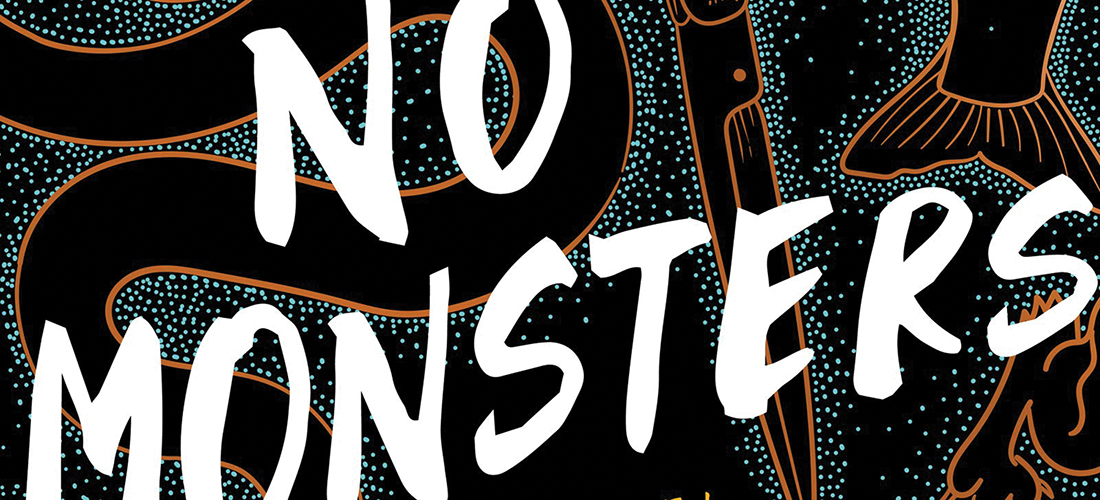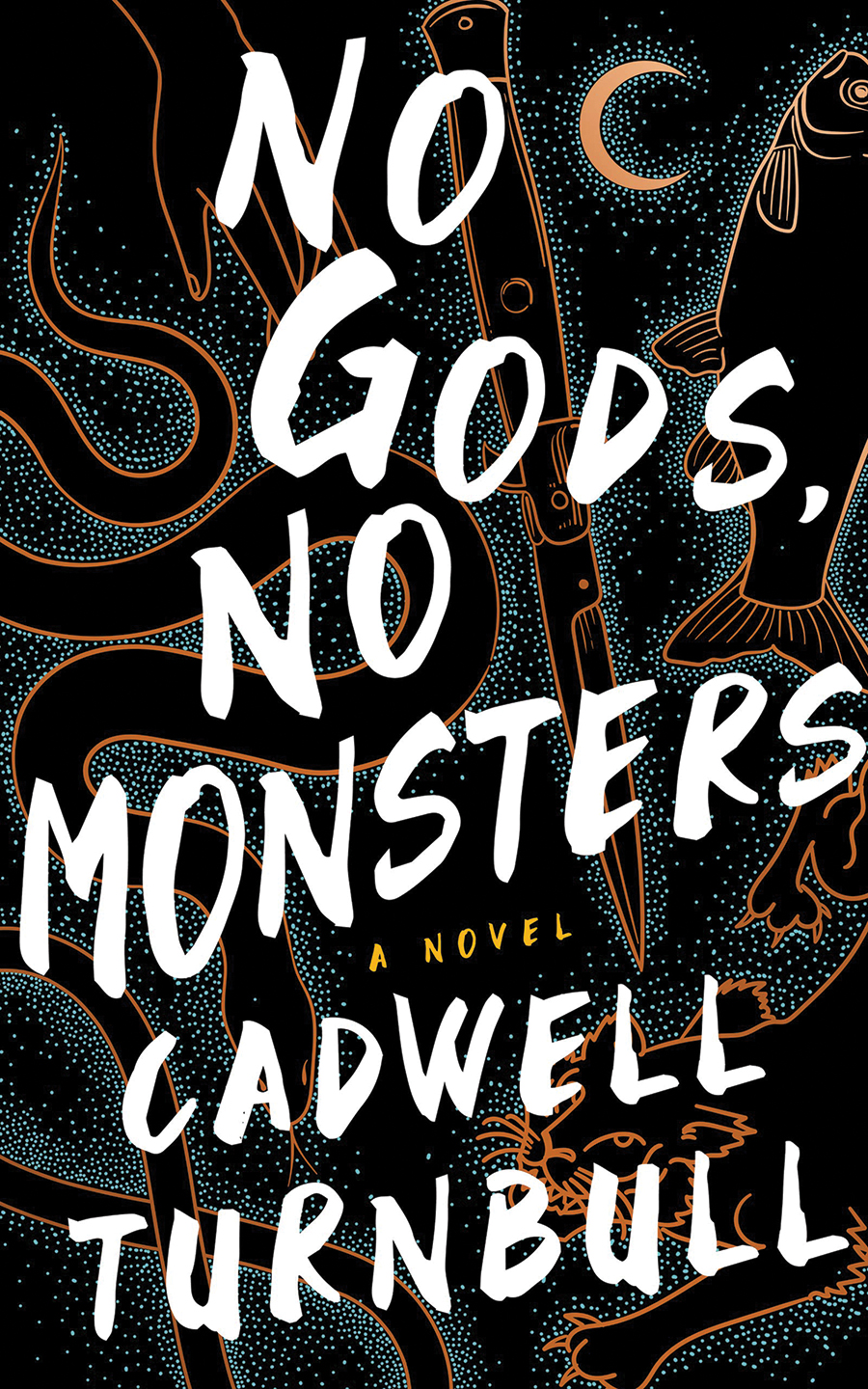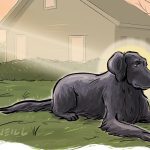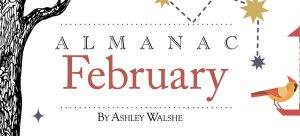
Mastering the Monsters
A sci-fi novel for our surreal world

By Anne Blythe
If the past couple of years have proven anything, it’s to expect the unexpected.
We’ve battled a virus that has shown its ability to morph and shape-shift. Some people accepted it as real. Others chose not to believe.
The world imagined by Cadwell Turnbull, a creative writing professor at N.C. State University, in his latest work of fiction, No Gods, No Monsters, gives us a similar choice.
There are monsters, gods and humans living together and living apart throughout his book. They force readers to reconsider what is real and what is not, to look at others with a sense that they might be more like you than different — or more different than you know.
Introduced as the first in a trilogy, No Gods, No Monsters opens with a professor sitting at a restaurant in Cameron Village in Raleigh, saying goodbye to his friend Tanya, and his academic life. As Tanya sits across from him, he tells her he has decided to leave his job and go home to St. Thomas in the Virgin Islands (Turnbull’s childhood home), where the professor has unresolved issues over the death of his brother.
Initially, we don’t know the professor’s name or how he’s connected to the characters in the pages ahead. He drops in and out of chapters, sometimes interjecting a jarring and puzzling voice, leaving readers to wonder who he really is and how the many storylines that Turnbull is juggling will come together.
Along the way, we meet a wild variety of characters: bookstore workers who can turn into werewolves; a character named Dragon (a child who can sprout wings and fly); a senator from the Virgin Islands who can become a dog; an invisible sibling; a witch; and more. It’s not until the very end that we can see the novel’s worlds merging. Even then, much remains unanswered, leaving readers to wonder what the next book in the trilogy has in store.
“I’m going to tell you a story,” the narrator says. “And like so many stories, it begins with a body.”
That body belongs to Lincoln, a naked Black man, dead in the street, shot by police.
Laina, Lincoln’s sister, picks up the storytelling. We learn from her that Lincoln had been hooked on drugs and living on the streets, estranged from his family.
At first, it might seem as if this will be another story about an unarmed Black man being shot by police. While that theme pulses through the book, we quickly find out that this story is going to be different.
Suppressed bodycam footage surfaces, and with its release comes a tale of monsters, werewolves and gods on Earth and beyond.
Initially, Laina is in disbelief as she watches the bodycam footage of her brother’s shooting. It’s dark at first, difficult to make anything out. Then she hears the cop say, “I see it. It’s big.”
Then she sees the creature, too. It’s doglike, she says, but “bigger than doglike.” It snarls at the cop and he fires his gun. His target falls to the ground.
As residents from the houses along the street come out to see the aftermath of the shooting, the creature the cop saw lunging at him has become simply a naked man, left slain between two cars.
“I don’t understand,” the cop says.
The bodycam shows that Laina’s brother, at least for a moment, was a werewolf. Turnbull calls that moment “the Fracture.” It’s the instant when someone’s world opens to the realization that monsters are among them. Some people take notice. Others look away.
“Most people outgrew true belief in monsters by adulthood, but even adults knew not to go outside at night during a power outage, go past a certain house or respond to whispers in the dark,” the senator from St. Thomas tells us after we meet her in the Virgin Islands. “Monsters existed in the liminal space of half-belief and practical superstition. Even folks who claimed not to believe in God knew not to tempt devils. Superstition allowed a certain kind of freedom, allowed a certain kind of power.”
The arc of the story can be disjointed at times, adding a touch of mystery, as readers go on a spellbinding journey from North Carolina to Massachusetts to the U.S. Virgin Islands and places in between.
The characters are good and evil, lovable and at times abominable. We see humans transform into werewolves as they shed their clothes and go on four-legged runs in the woods, chasing squirrels and other small critters. We meet a woman who drinks the blood of her sister and can pull her skin off and on. Others lead mundane lives while battling monsters of their own.
Many of these characters eventually come together at a monster march, depicted as a kind of otherworldly Black Lives Matter rally when a large crowd marches through the Boston streets after Lincoln’s death, chanting, “No gods, no monsters!”
By using the sci-fi genre, Turnbull tempts his readers to explore tough and touchy topics such as drug addiction, police shootings, societal divisions and the monsters that can be created when neither side explores the motivation of the other.
Laina introduces us to Ridley, her asexual, transgender, anarchist husband who moved from Harrisonburg, Virginia, where his parents still live, to Massachusetts to open a co-op bookstore. We meet Rebecca, Laina’s girlfriend, who knew Lincoln, and Sarah, her housemate. Both Rebecca and Sarah have the ability to transform into sturdy-legged werewolves.
Throughout Turnbull’s book, we end up wondering whether monsters are people or people are monsters.
“You think monsters are dangerous? Or you think people who believe in them are? Which one? Both?” Sarah asks Ridley after he tells her he might not go to the monster march in Boston because he’s worried about the potential for violence.
“People need to be protected, too,” Ridley tells Sarah.
The book tugs and pulls its characters through inner wars as they deal with a fractured world around them and their own splintered lives. At one point, Ridley sees the Earth open up below a circle of glowing red ants while on a retreat at a collective peanut farm in Virginia. He tumbles into an abyss with monsters so jarring that he stays mum about his experience. What are the consequences of speaking out or the cost of staying silent?
Turnbull’s complex story takes readers across the surface of the Earth and into the many dimensions of the mind as his characters carom through a multitude of societies — some secret from long ago, some modern and seemingly ordinary but very destructive.
Even for people not typically drawn to sci-fi or fantasy novels, settling in with this story is well worth it. OH
Anne Blythe has been a reporter in North Carolina for more than three decades. She has covered city halls, higher education, the courts, crime, hurricanes, ice storms, droughts, floods, college sports, health care and many wonderful characters who make this state such an interesting place.




